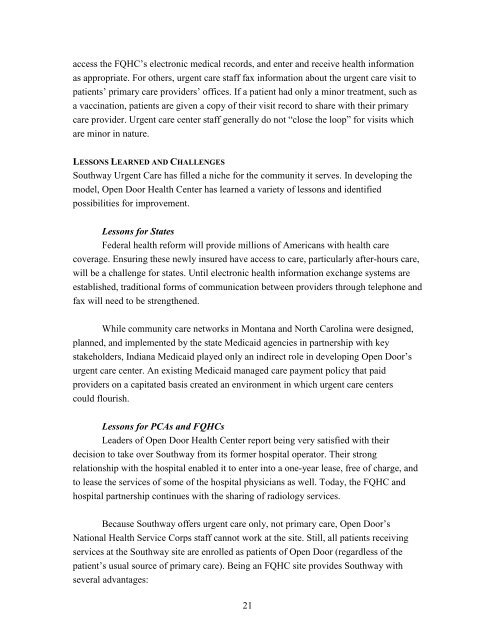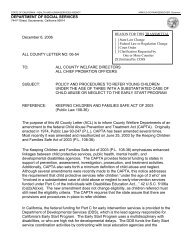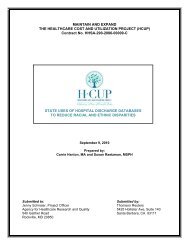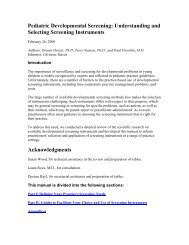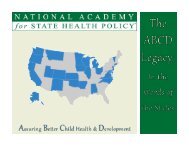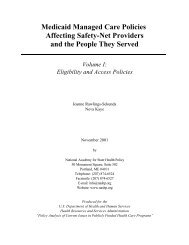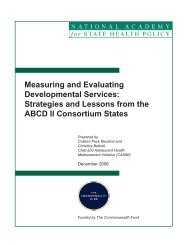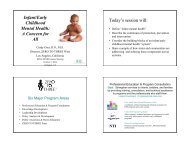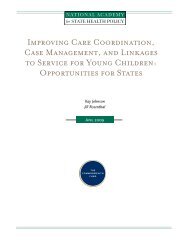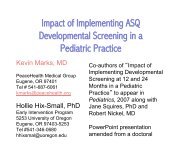Developing Federally Qualified Health Centers into Community ...
Developing Federally Qualified Health Centers into Community ...
Developing Federally Qualified Health Centers into Community ...
You also want an ePaper? Increase the reach of your titles
YUMPU automatically turns print PDFs into web optimized ePapers that Google loves.
access the FQHC’s electronic medical records, and enter and receive health information<br />
as appropriate. For others, urgent care staff fax information about the urgent care visit to<br />
patients’ primary care providers’ offices. If a patient had only a minor treatment, such as<br />
a vaccination, patients are given a copy of their visit record to share with their primary<br />
care provider. Urgent care center staff generally do not ―close the loop‖ for visits which<br />
are minor in nature.<br />
LESSONS LEARNED AND CHALLENGES<br />
Southway Urgent Care has filled a niche for the community it serves. In developing the<br />
model, Open Door <strong>Health</strong> Center has learned a variety of lessons and identified<br />
possibilities for improvement.<br />
Lessons for States<br />
Federal health reform will provide millions of Americans with health care<br />
coverage. Ensuring these newly insured have access to care, particularly after-hours care,<br />
will be a challenge for states. Until electronic health information exchange systems are<br />
established, traditional forms of communication between providers through telephone and<br />
fax will need to be strengthened.<br />
While community care networks in Montana and North Carolina were designed,<br />
planned, and implemented by the state Medicaid agencies in partnership with key<br />
stakeholders, Indiana Medicaid played only an indirect role in developing Open Door’s<br />
urgent care center. An existing Medicaid managed care payment policy that paid<br />
providers on a capitated basis created an environment in which urgent care centers<br />
could flourish.<br />
Lessons for PCAs and FQHCs<br />
Leaders of Open Door <strong>Health</strong> Center report being very satisfied with their<br />
decision to take over Southway from its former hospital operator. Their strong<br />
relationship with the hospital enabled it to enter <strong>into</strong> a one-year lease, free of charge, and<br />
to lease the services of some of the hospital physicians as well. Today, the FQHC and<br />
hospital partnership continues with the sharing of radiology services.<br />
Because Southway offers urgent care only, not primary care, Open Door’s<br />
National <strong>Health</strong> Service Corps staff cannot work at the site. Still, all patients receiving<br />
services at the Southway site are enrolled as patients of Open Door (regardless of the<br />
patient’s usual source of primary care). Being an FQHC site provides Southway with<br />
several advantages:<br />
21


